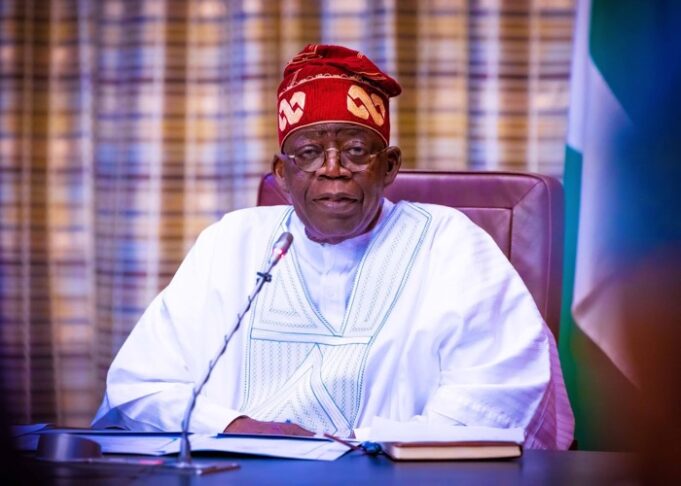President Bola Tinubu has called on African leaders to respect democracy, rule of law, and ensure political stability, saying coup d’état should be discouraged in the continent, especially in the face of challenges like the COVID-19 pandemic, insecurity, and climate change.
Tinubu urged African military institutions and states to recognise and respect the need for democratic renewal.
The president, who is also the Chairman of ECOWAS Authority of Heads of State and Government, said this at a high-level event organised by the United Nations Development Programme (UNDP) on the margins of Fifth Mid-Year African Union (AU) Coordination Meeting in Nairobi, Kenya, on Saturday, July 15, 2023.
President Tinubu, in his statement presented by the Permanent Secretary in the Ministry of Foreign Affairs, Ambassador Adamu Ibrahim Lamuwa, said it was regrettable that West Africa, despite its numerous instruments and mechanisms for promoting democracy and good governance, is leading other regions in the use of unconstitutional means to change governments.
He stressed that the ugly trend of the military straying into the political arena is causing threats to peace, security and stability, and engendering poverty, displacement, and humanitarian crises.
Tinubu said: “This ugly trend has only succeeded in threatening the peace, security, and stability of the sub-region and by extension the African continent, leaving in its trail poverty, internally-displaced persons, and humanitarian crisis. In the same vein, this ugly trend has also led to food shortages and escalated health challenges.
READ ALSO: Food crisis: Tinubu declares state of emergency, rolls out measures
“We therefore must take deliberate steps to address the root causes of unconstitutional changes and coups d’état in Africa. As a continent, we cannot make progress toward achieving the goals and targets of the UN Agenda 2030 for sustainable development, as well as those of AU Agenda 2063 for the ‘Africa We Want’.
“Between 2020 and now, Africa has witnessed six successful coups d’état and three unsuccessful attempts. This rise in military takeovers and unconstitutional changes in government disrupts our democratic processes and undermine stability on the continent.
“It is for this reason that I call on all African leaders at all levels to make concerted efforts in respecting the tenets of democracy and the rule of law, in order to ensure political stability on the continent.”
President Tinubu further stressed that Africa has no intention of regressing on its democratic gains and credentials, as well as its maturing democratic political culture.
Drawing a comparison between military rule and democratic regimes, he noted that democracy ensures good governance, inclusivity, transparency, and accountability.
President Tinubu, while emphasising the need to disincentivise coup d’état, urged the United Nations to take a firm stance against military coups.
He, however, thanked the UNDP for inviting him to deliver a goodwill message at the event, assuring the organisation of his commitment to confronting the issue of military coups and promoting democratic renewal in Africa.
Also speaking at the event, the UNDP Regional Programme Coordinator (Africa), Jide Okeke, said his organisation invited Tinubu after his inspiring message, denouncing military coups, during his inauguration as Chairman of ECOWAS Authority of Heads of State and Government on July 9.
He expressed delight that President Tinubu’s presence and participation in the UN high-level event demonstrates Nigeria’s commitment to democratic values and stability, reasserting Nigeria’s leadership in Africa and the global community.
He described the president’s message as sending a positive signal to the international community about Nigeria’s commitment to democratic values and stability.
On the UNDP flagship report, the African Regional Coordinator said it is timely in advancing Nigeria’s vision of stability for West Africa and the continent as a whole.
He stated that the report combines empirical data, literature, and personal stories from citizens who have lived through coups, contrasting their experiences with those in countries transitioning to democracy.










